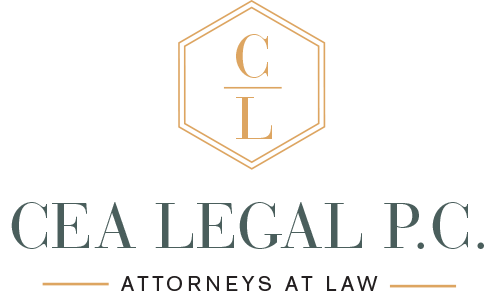Estate Planning
An estate plan is a crucial strategy that should be devised for the transfer of high-net-worth individuals’ property, whether during their lifetime or, often, after their death.
At Cea Legal, we strive to create “bespoke” estate plans for each client. The task begins with understanding our clients’ long-term goals: making gifts or enjoying their wealth during their lifetime; optimal tax allocations; transfer assets at death and reducing probate proceedings; providing for disability; making charitable contributions.
Before devising an effective strategy, we request that our clients provide a full picture of their assets to understand how the same are held (whether individually or jointly with someone else) and to assess the risk of estate taxes (currently, the federal estate tax exemption is for individuals owning assets whose value is lower than $12,060,000 and for married couples owning assets whose value is lower than $24,120,000).
A will is one of the most powerful and important estate planning tools, in that it avoids undesirable results coming from an intestate succession. A basic will organizes the transfer of the assets of the testator. A pour-over will transfer all the assets of the testator to a revocable trust, which then will govern how the same assets will be used. A disclaimer will allow the beneficiary to disclaim the assets for tax purposes, thus creating a trust for later use.
The other very common legal arrangement used to accomplish multiple estate goals is a trust, in which one party (the trustee) is appointed by another one (the settlor) to hold and manage one or more assets on behalf of one or more beneficiaries.. In a revocable trust, the settlor retains the power to modify the provisions of trust that must be followed by the trustee, or to even terminate the trust and reclaim the assets. To counterbalance the great degree of flexibility given in the context of revocable trusts, the latter do not offer protection from creditors’ rights and tax obligations. However, revocable trusts are still useful as means to avoid the often cumbersome probate procedure to administer the assets of the deceased and to provide privacy because revocable trusts are private while probated wills are public. An irrevocable trust is a very effective but, at the same time, potentially dangerous tool. The assets transferred in these completely separate legal entities cannot be reached by creditors or tax authorities, provided, however, that the transfer is completed during a bankruptcy proceeding or to avoid an existing credit, clawback and fraud provisions kick in. While this is a very attractive feature, the settlor should carefully structure an irrevocable trust because, once finalized, it can be modified with the consent of the beneficiaries.
A life insurance policy is another useful estate planning tool when the purchaser takes out the policy and appoints a beneficiary that will receive a lump sum if the purchaser dies during the term of the insurance. In the context of closely-held businesses, life insurances are often utilized in connection with buy-sell agreements, thus allowing the heirs of the company’s owners to receive a payout at the time of the death.
CONTACT OUR OFFICE TODAY:


